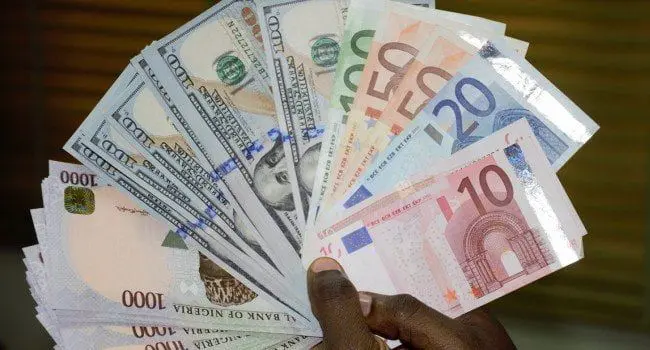
Aboki Naira to Dollar Black Market Exchange Rate Today, 21st November 2025
The Nigerian Naira maintained its fragile footing against the US Dollar in the parallel market today, with informal currency traders—commonly known as “Aboki” operators—quoting a selling rate of ₦1,470 per unit across key cities including Lagos, Abuja, Port Harcourt, and Kano.
This marks a marginal uptick from yesterday’s ₦1,465 benchmark, signaling persistent volatility in Nigeria’s forex landscape despite recent Central Bank interventions.
Trending Now!!:
The buying rate hovered around ₦1,465, reflecting a narrow spread that traders attribute to subdued demand from importers ahead of the weekend and a slight rebound in crude oil prices, Nigeria’s primary forex earner.
For context, exchanging $1,000 in the black market would yield approximately ₦1,465,000 at buying rates—a small buffer for households and businesses grappling with soaring import costs, but still emblematic of the Naira’s year-long depreciation from highs near ₦1,600 earlier in 2025.
Market observers, including economists at Nairametrics, warn that this stability is “precarious at best.” Dr. Aisha Bello, a senior analyst, noted in a recent commentary that underlying factors, such as rampant inflation—now at 28.5% year-on-year—and the lingering effects of fuel subsidy removals, continue to erode purchasing power.
“The Aboki rate’s brief hold offers importers a breather, but without aggressive forex inflows or policy tweaks, we could see it breach ₦1,500 by December,” Bello said.
In comparison, the official Central Bank of Nigeria (CBN) rate stood at around ₦1,550 per Dollar in the Investors and Exporters (I&E) window, underscoring the persistent premium on black market transactions.
This gap, which widened dramatically post-2023 reforms, has fueled a thriving informal sector but also raised concerns over capital flight and illicit flows.
For everyday Nigerians, today’s rates translate to continued sticker shock at markets and fuel stations, where dollar-pegged commodities like rice and electronics remain prohibitively expensive. Small-scale traders, reliant on Aboki networks for quick swaps, advise verifying rates via apps like AbokiFX to avoid scams amid the opaque market.
As the year draws to a close, all eyes remain on upcoming CBN auctions and global oil dynamics. With Russia’s recent pledge to meet OPEC+ quotas potentially stabilizing crude benchmarks, there may be glimmers of hope—but for now, the Naira treads a tightrope.
Stay tuned for live updates as parallel market rates evolve through the weekend.


